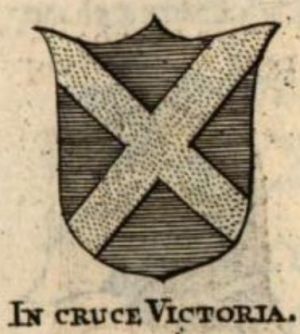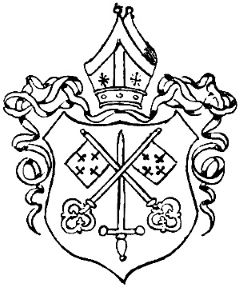
Negotiator, envoy, bureaucrat and bishop, William Warelwast filled all of these roles in his years of service to three English Kings. He probably began as a copy clerk in the chancellery of William 1st and ended as one of the most proficient diplomats of the age. He travelled a great deal throughout his long and controversial career : through Normandy, France and England, to Italy and the Papal court in Rome. His name is not much known outside of medievalist circles but he is another important figure in English history whose life was an extraordinary amalgam of prestigious high-powered activity and unsavoury, not to say, reprehensible episodes (like the incident on Dover Beach in November 1097).
He was, in the words of historian, RW Southern, “the first professional civil servant.” He is the earliest example of the type of official who implements the king’s will not by force but through negotiations, persuasion, bribery. He understands what are the weaknesses and strengths of opponents and how best to reward allies. Subtle, persuasive, oily and efficient, we know the type. But it would be wrong to condemn him without giving him a fair hearing because much of what he did was necessary, served the interests of peace and on the whole did not harm the interests of the church.
We can sketch his career profile or at least make some plausible reconstructions but the first reliable information comes from the writs he authorised for King William II. He also appears in the records as judge in a legal case, then he becomes an envoy to the Pope in 1095 and then again in 1096, making two journeys to Rome in consecutive years in connection with the King’s disagreements with Anselm. These were major undertakings at the time, travel always involved considerable risk. Warelwast was frequently employed on church business and therefore frequently ran into Archbishop Anselm, sometimes in unhappy circumstances. For example, on the occasion of the archbishop’s first exile from England.
Anselm’s biographer, Eadmer, captured for us the final moments of Anselm’s expulsion from England in the reign of William II. Without this record we would have been deprived of a supremely dramatic moment in the life of the archbishop. As it is, Eadmer brings to life both the tragedy and the sad comedy of this extraordinary episode.
The scene is Dover Beach, November 1098. Anselm, about to leave England on his way into exile, is gathered with his party and their luggage on the beach, waiting for row boats to take them out to the cross-channel vessel. It is cold and a wind is blowing. Then, Eadmer tells us, along the beach comes William Warelwast with a mandat from the king to search Anselm’s baggage. Nothing is to be taken from the kingdom which might embarrass the king, such as letters from discontented clerics, appeals to the Pope, king’s coin, church plate or any diocesan regalia. There on the beach the bags are searched. It is a stupendous insult to an old man about to go into exile. Yet without Eadmer’s account we would know nothing about it.
For full context and dramatic reconstruction of what happened on Dover Beach in 1097 see The Remarkable Tale of the Bull and the Sheep, Chapter Thirteen.
After the death of King William II, Warelwast slips with frictionless aplomb into acting in the same roles under the new king, Henry 1st. Again his diplomatic skills are required in repeated encounters with Anselm, including another clash resulting in exile. Embarrassing scenes from one reign are played out in another. Warelwast and Anselm seemed destined to be antagonists in a neverending contention between the two great powers of state: king and church.
It would be easy to imagine that such a fraught history might destroy the possibility of any future relations between Warelwast and Anselm. Yet this appears not to be the case.

Warelwast served Henry so well that, like many proficient diplomats and administrators, he was rewarded with a bishopric. From his consecration in August 1107 he began a second career as Bishop of Exeter. And who was it who performed his consecration? None other than Archbishop Anselm. Unfortunately Eadmer left us no detailed account of this scene so we don’t know how Anselm may have felt about consecrating the man who searched his bags on Dover Beach ten years before.
As bishop, William Warelwast travelled again, to the Council of Rouen in 1118, to the Council of Reims in 1119. He began the construction of a new cathedral which was consecrated in 1133. In fact he went on to enjoy a second distinguished career in the church. This life pattern was not unusual. It is not unusual today. After decades of brilliant diplomatic work ‘civil servants’ were rewarded, not with promotion to ‘the Lords’ but with bishoprics and high church office.
For more on the dramatic and distinguished life of this ‘first professional civil servant’ see Deaths, Disasters and Destinies, Chapter Eleven (p. 327)